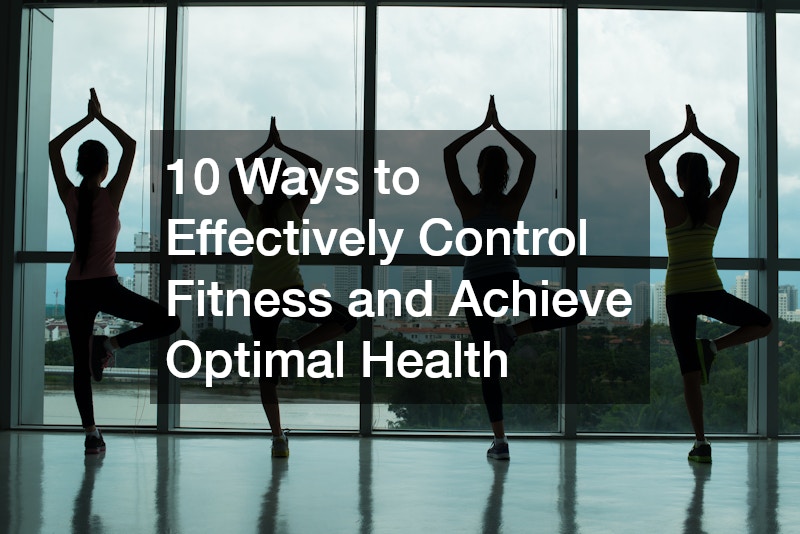Being around people can be fun—but it can also be scary if you don’t feel confident. Whether you’re meeting new friends, giving a presentation, or just chatting at a party, social confidence helps you connect with others and feel good about yourself.
But confidence isn’t something you’re born with—it’s something you build. With practice and a few simple habits, anyone can learn how to be more socially confident.
This guide covers practical tips and strategies to help you feel more comfortable and in control in social settings, even if you’re shy or anxious.
Why Social Confidence Matters

Social confidence can improve your life in many ways:
- Stronger relationships: You connect better with friends, family, and co-workers.
- Better communication: You express your thoughts and feelings more clearly.
- More opportunities: Confidence helps you succeed at work, school, and in your personal life.
- Less stress: You worry less about what others think.
If you’ve ever avoided a conversation or left an event early because of nerves, you’re not alone. The good news is that social confidence can be learned.
1. Start with Your Body Language
How you carry yourself affects how others see you—and how you feel inside. Confident body language can help you feel more in control, even if you’re nervous. Your posture, gestures, and expressions send strong signals, even before you say a word. By making small physical changes, you can influence your mindset and the impression you give others.
Tips:
- Stand tall with your shoulders back. This shows self-assurance and poise.
- Make eye contact (but don’t stare). Looking someone in the eye shows confidence and interest.
- Smile—it makes you more approachable and helps break the ice.
- Keep your hands visible instead of hiding them in your pockets. Open gestures suggest honesty and calm.
- Don’t fidget or cross your arms (this can look nervous or closed off).
- Try practicing in a mirror or recording yourself to get more comfortable with confident posture and gestures.
2. Practice Speaking Clearly
When you’re nervous, you may talk too fast, mumble, or avoid speaking at all. Speaking clearly and at a steady pace helps you come across as confident and calm. How you speak can either build trust or cause confusion—so it’s important to make your words easy to understand. Even if you’re shy, improving your speech can make a big difference in social situations.
How to improve:
- Take your time—pause between thoughts. This gives your listener time to process what you’re saying.
- Lower your voice slightly—a steady tone sounds more confident and grounded.
- Practice out loud at home—read a book or talk to yourself in the mirror to get more comfortable.
- Join a club like Toastmasters to practice speaking in front of others.
- Don’t worry about being perfect. People care more about your message than perfect grammar or word choice.
3. Start Small & Build Up

You don’t need to dive into a large crowd or give a big speech to build social confidence. In fact, starting small is often the best approach. Small, manageable interactions help reduce pressure and allow you to grow your confidence step by step. Each successful moment—even a quick smile or short conversation—adds up over time and helps you feel more at ease in bigger situations.
Try these beginner steps:
- Say “hi” to a neighbor, coworker, or cashier. A simple greeting is a low-pressure way to get used to speaking up.
- Join a small group activity like a class, local meetup, or hobby club. These provide built-in topics for conversation and shared interests.
- Attend short events or gatherings. Try staying for just 30 to 60 minutes at first—enough to get some interaction without feeling overwhelmed.
- Aim to talk to at least one new person each time. It could be a compliment, question, or casual comment.
As you grow more comfortable, you’ll naturally want to stay longer and connect with more people. Each small success boosts your confidence and prepares you for larger, more social situations in the future.
4. Work on Self-Talk
The way you speak to yourself plays a major role in how socially confident you feel. Negative self-talk can make you second-guess everything and avoid new situations. On the other hand, positive self-talk helps you feel capable, calm, and ready to connect with others. It’s not about ignoring your nerves—it’s about encouraging yourself through them.
Start by noticing your inner dialogue. If you catch yourself thinking something negative, pause and reframe it into something more supportive and constructive. With practice, your inner voice can become your biggest cheerleader.
Examples:
- Instead of: “I’m too awkward.”
Say: “I’m learning how to improve.” - Instead of: “They won’t like me.”
Say: “I’ll give it a try. I can’t know until I talk to them.” - Instead of: “I always mess up.”
Say: “Everyone makes mistakes. I’ll keep practicing.”
You can also write down a few go-to phrases like “I can handle this,” or “I’m doing my best,” and repeat them before entering social situations. Positive self-talk may feel strange at first, but over time, it can seriously boost your confidence and help you stay grounded.
5. Prepare Ahead of Time
Feeling confident in social situations often starts with being prepared. Taking time to get ready mentally can ease anxiety and help you feel more in control. When you walk into an event with a plan, you’re less likely to feel overwhelmed—and more likely to enjoy yourself.
Before the event:
- Think of 2–3 questions you can ask others. Simple ones like “What do you do for fun?” or “Have you been here before?” can spark great conversations.
- Have a few topics ready—like a favorite hobby, a show you recently watched, or a fun memory. This gives you something to share if the conversation slows down.
- Dress in something comfortable and confidence-boosting. Feeling good about how you look can improve how you carry yourself.
- Set a realistic goal. For example, “I’ll introduce myself to two new people,” or “I’ll stay for 45 minutes.” Goals give you something positive to focus on.
Preparation doesn’t mean scripting everything. It just gives you tools to fall back on if you start to feel nervous. When you know you’ve planned ahead, you’ll walk in feeling more relaxed—and much more socially confident.
6. Focus on the Other Person
One of the best ways to feel more socially confident is to shift your attention away from yourself and onto the person you’re talking to. When you’re nervous, it’s easy to get caught in your head—wondering things like, “Do I sound weird?” or “What should I say next?” But focusing too much on yourself only makes anxiety worse. Instead, become curious about the other person.
Tips:
- Ask open-ended questions like “What do you enjoy doing in your free time?” or “How did you get into your job or hobby?”
- Listen actively. Nod, smile, and give verbal cues like “That’s interesting” or “Wow, tell me more.”
- Repeat their name during the conversation. This helps you remember it and makes the interaction feel more personal.
- Look for shared interests—books, music, places, or goals. Finding something in common helps build connections.
When you focus on making the other person feel seen and heard, it naturally makes the conversation smoother. You won’t have as much time to worry about what you’re doing “right” or “wrong”—because you’ll be genuinely engaged. Confidence often follows connection, so make others your focus.
7. Don’t Fear Awkward Moments
It’s normal to feel nervous about awkward moments—but the truth is, everyone experiences them. Even the most confident people stumble, forget what they were saying, or run into uncomfortable silences. The key to being socially confident isn’t avoiding awkward moments—it’s learning how to handle them without panic.
What to do:
- Acknowledge it with a smile. Say something like, “Oops, I totally lost my train of thought,” or “That was an awkward pause—no worries!” A lighthearted attitude puts everyone at ease.
- Redirect the conversation. Ask a new question like, “So, what kind of music are you into?” or “Have you been to any good restaurants lately?”
- Exit gracefully if needed. If the conversation has run its course, say something polite like, “It was really nice talking to you. I’m going to check in with a friend/grab a snack.”
Remember, awkward moments aren’t signs of failure—they’re just part of being human. The more you practice talking to people, the easier it becomes to bounce back from silences or stumbles. With time, you’ll find these moments matter less, and your overall confidence will grow stronger.
8. Practice Makes Progress
Building social confidence is just like building any other skill—it takes time, effort, and regular practice. The more often you engage in social situations, the more natural and less stressful they’ll feel. Even if you’re shy or introverted, taking small, regular steps can help you become more comfortable around others.
Ways to practice:
- Volunteer at local events or community centers. It’s a great way to meet people while focusing on helping others.
- Join local clubs, hobby groups, or sports teams. Shared interests make conversations easier.
- Take a class. Whether it’s dance, cooking, or a new language, learning something with others creates natural interaction opportunities.
- Try online communities. If face-to-face feels overwhelming at first, start with forums, game groups, or video calls to ease into it.
- Set a weekly goal. Aim for one social activity a week—coffee with a friend, chatting with a coworker, or attending a meet-up.
Confidence doesn’t happen all at once. It builds with every positive experience. The more you step out of your comfort zone, the more you’ll realize you’re capable of handling social situations. Keep at it—and be proud of every step you take.
9. Learn from Confident People
A powerful way to build your own social confidence is by observing people who already have it. Confident individuals often display habits and behaviors that you can learn from and adapt to fit your own personality.
Try this:
- Watch videos of confident speakers. TED Talks, interviews, or even popular YouTubers can give you a front-row seat to how confident people speak and move. Focus on their body language, pacing, and how they handle mistakes or pauses.
- Observe confident people in real life. Friends, coworkers, or even strangers in social settings can be great examples. Pay attention to how they start conversations, use humor, or respond to awkward moments.
- Take notes (mentally or physically). Jot down things you notice, like a friendly tone of voice, eye contact, or the way they ask open-ended questions.
- Practice what you see. You don’t have to become a carbon copy—just experiment with some of the positive habits you observe. Over time, you’ll build a version that feels natural to you.
Learning by example is a smart, low-pressure way to boost your skills. With consistent observation and practice, you’ll develop your own version of confident communication.
10. Build Social Confidence Through Self-Care
Confidence isn’t just about practice—it also comes from how you treat yourself.
Daily habits that help:
- Exercise—even 15 minutes a day can boost your mood.
- Sleep—get 7–9 hours per night to feel sharp and balanced.
- Eat well—fuel your brain with healthy food.
- Limit negative media—social media can hurt your self-esteem.
- Celebrate wins—write down moments when you did something brave.
Taking care of your mental and physical health supports your ability to feel confident.
Final Thoughts: You Can Become More Socially Confident
If you’ve ever wondered how to be more socially confident, know that it’s not about being the loudest or most outgoing person in the room. It’s about feeling calm, connected, and comfortable being yourself.
Confidence grows with practice, patience, and small steps. Don’t try to change overnight. Each conversation, smile, and positive thought helps you improve.
Remember: Everyone starts somewhere. You’re not alone—and with time, you’ll feel more at ease in every social setting.





